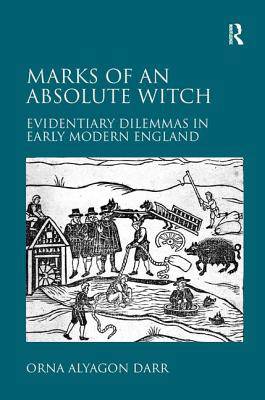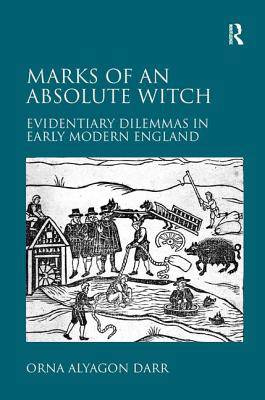
- Afhalen na 1 uur in een winkel met voorraad
- Gratis thuislevering in België vanaf € 30
- Ruim aanbod met 7 miljoen producten
- Afhalen na 1 uur in een winkel met voorraad
- Gratis thuislevering in België vanaf € 30
- Ruim aanbod met 7 miljoen producten
Zoeken
Marks of an Absolute Witch
Evidentiary Dilemmas in Early Modern England
Orna Alyagon Darr
Hardcover | Engels
€ 343,45
+ 686 punten
Omschrijving
Exploring the crime of witchcraft in early modern England, this book focuses on legal questions of proof. As a capital crime - yet one that was uniquely difficult to prove - witchcraft investigations and trials offer a fascinating lens through which to observe social and judicial attitudes towards crime, punishment and evidentiary standards. The witchcraft debate took place within the formative era of modern evidence law, and the book highlights the mutual influences between the witch trials and major legal developments.
Specificaties
Betrokkenen
- Auteur(s):
- Uitgeverij:
Inhoud
- Aantal bladzijden:
- 334
- Taal:
- Engels
Eigenschappen
- Productcode (EAN):
- 9780754669876
- Verschijningsdatum:
- 20/07/2011
- Uitvoering:
- Hardcover
- Formaat:
- Genaaid
- Afmetingen:
- 156 mm x 234 mm
- Gewicht:
- 644 g

Alleen bij Standaard Boekhandel
+ 686 punten op je klantenkaart van Standaard Boekhandel
Beoordelingen
We publiceren alleen reviews die voldoen aan de voorwaarden voor reviews. Bekijk onze voorwaarden voor reviews.







